Protein Requirements For Livestock And The Factors Affecting Them
Protein in animal feed plays a crucial role in ensuring optimal growth, improving product quality, and maximizing the efficiency of livestock operations. However, the protein needs of animals vary depending on their growth stages and the specific goals of the breeding process. Feed manufacturers must carefully formulate the right balance of ingredients and select appropriate protein sources to ensure economic efficiency, cost savings, and high-quality products.
What is Protein?
Protein (also known as crude protein) consists of large molecules formed by chains of amino acids linked by peptide bonds. It is an essential component of the body, involved in all physiological processes of cells. Protein supports tissue formation, maintenance, and regeneration. It helps sustain the body’s structure, supports the immune system, regulates metabolism, and plays a vital role in maintaining cell shape, muscle tissue, and facilitating digestion.
A protein deficiency in animals can result in severe consequences such as malnutrition, stunted growth, and weakened immunity. Specifically, for livestock, a diet rich in protein significantly enhances production efficiency, leading to higher yields of meat, eggs, milk, and improved reproductive health.
The importance of protein for animal growth
Protein is critical from the neonatal stage through to adulthood. It is the primary building block for muscles, bones, skin, fur, hooves, and teeth. When digested, proteins are broken down into amino acids, which aid in the building and repair of tissues. During the early life stages, animals have a higher protein requirement to support rapid growth.
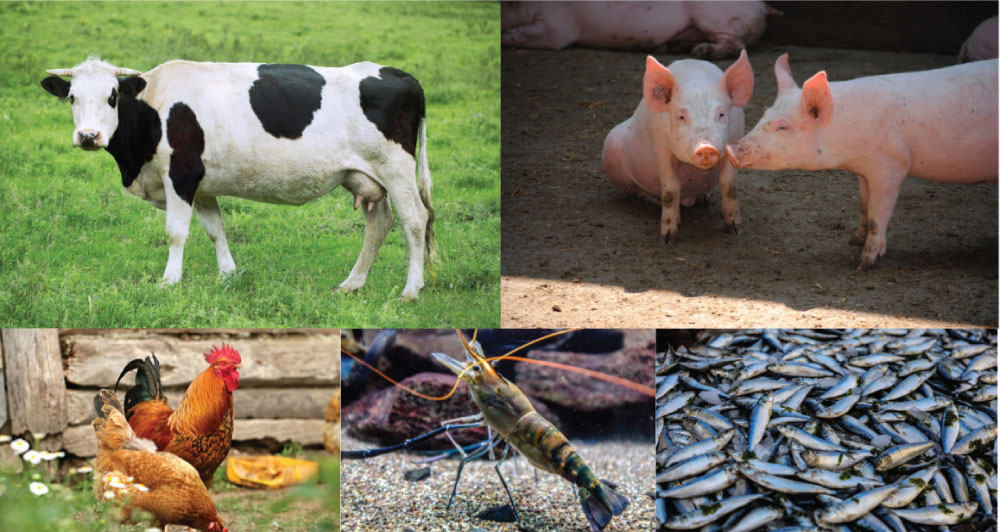
Protein as a key nutrient for animal development and quality products
Providing adequate protein helps animals grow more rapidly, improves product quality, and enhances production efficiency - whether in meat, eggs, or milk. High-quality protein improves meat texture, resulting in leaner cuts with better flavor, thus increasing market value.
Additionally, protein supports the immune system, helps produce enzymes and hormones, and maintains hormonal balance and metabolic functions. For example, albumin, a type of protein, plays a key role in regulating fluid and electrolyte balance in the animal's body, stabilizing metabolic processes.
Protein requirements for different types of livestock
Protein requirements for cattle (cows, goats, sheep)
For livestock such as cattle, goats, and sheep, the primary diet consists of roughage, particularly green forage. Calves and kids require a protein-rich diet during the early stages of life to support muscle, bone, and immune system development. Meat animals need protein supplementation to optimize lean meat yield, while dairy cattle (such as cows) require high-protein diets to maintain milk production and quality.
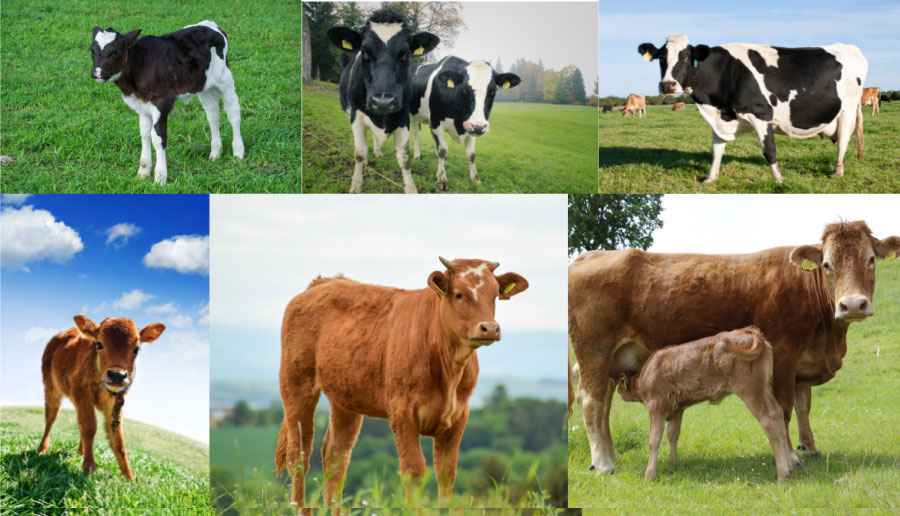
Providing a balanced protein intake helps enhance meat and milk quality
Protein requirements for pigs
The protein requirements of pigs vary according to their developmental stages. Piglets and weaning pigs need a significant amount of protein for rapid growth, while adult pigs and sows require an appropriate protein intake to maintain health and optimize milk production. Specifically, pregnant sows and lactating mothers need additional protein to support a healthy pregnancy and ensure quick recovery.

Depending on their growth stage, pigs need different amounts of protein
Protein requirements for poultry (chickens, ducks, geese)
In the early stages of life, chickens and ducks require high levels of protein for muscle, feather and bone development. As they mature, the protein level in their diet stabilizes to achieve optimal weight and proper lean meat ratio. For laying hens and ducks, high protein intake enhances egg quality and production, while also maintaining the health of the hens and ducks.
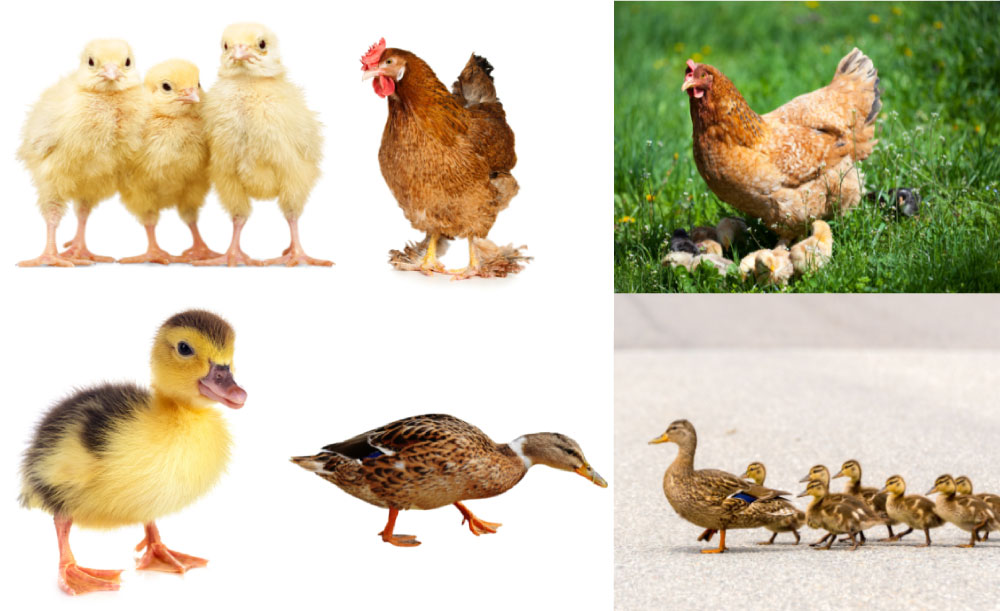
Supplementing protein at the right ratio ensures high-quality meat and eggs
Protein requirements for aquaculture (fish, shrimp)
Aquatic animals, particularly fish and shrimp, have very high protein requirements, especially during the breeding stages. Fish need between 30-40% protein during their early life stages to develop vital organs. Similarly, shrimp require 35-40% protein in their diet to support their growth, especially during molting periods. Protein plays a crucial role in helping shrimp develop and increasing their survival rate.

Aquatic animals need abundant and highly digestible protein sources
Top protein-rich feed ingredients for livestock
Fish meal
Fish meal is a high-quality natural protein source, containing 65-70% protein. It helps in the development of muscles, bones, and the immune system. Fish meal also provides omega-3 fatty acids, calcium, and phosphorus, which contribute to rapid and healthy growth of livestock. This ingredient is essential in animal feed production.
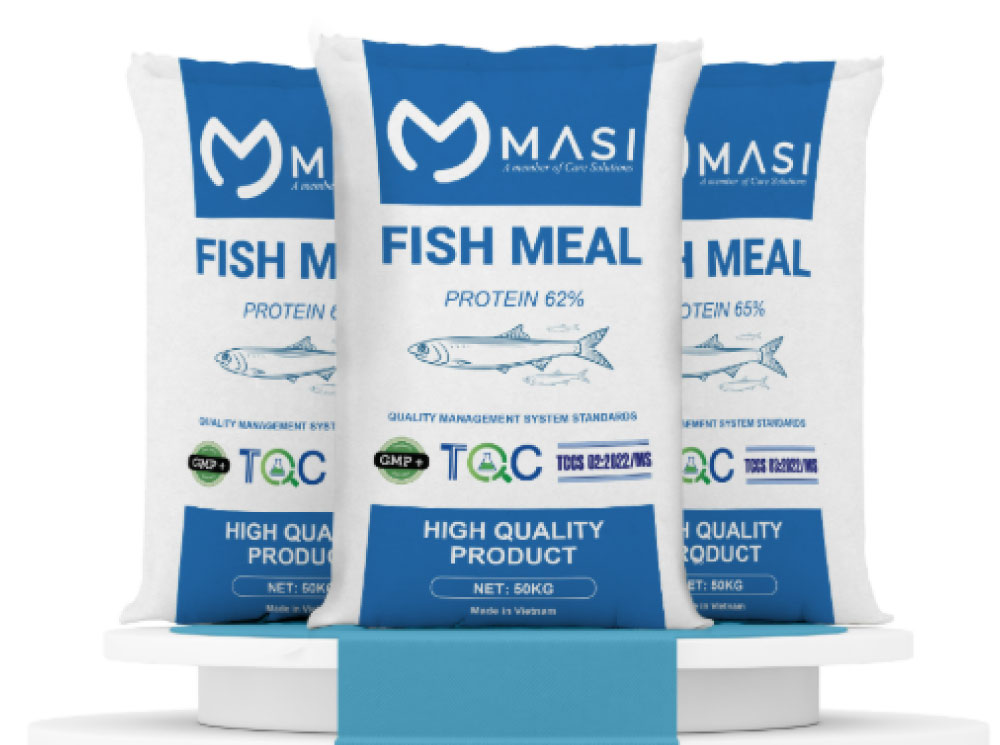
Fish meal is a premium natural protein source, suitable for various nutritional regimes for livestock
Fish soluble paste
Fish soluble paste, with a protein content ranging from 30-40%, is a by-product of the fish processing industry. It provides a highly digestible protein source and is rich in essential minerals such as calcium, phosphorus, zinc, and iron. Fish soluble paste plays a crucial role in supplementing energy for livestock, particularly in aquaculture.
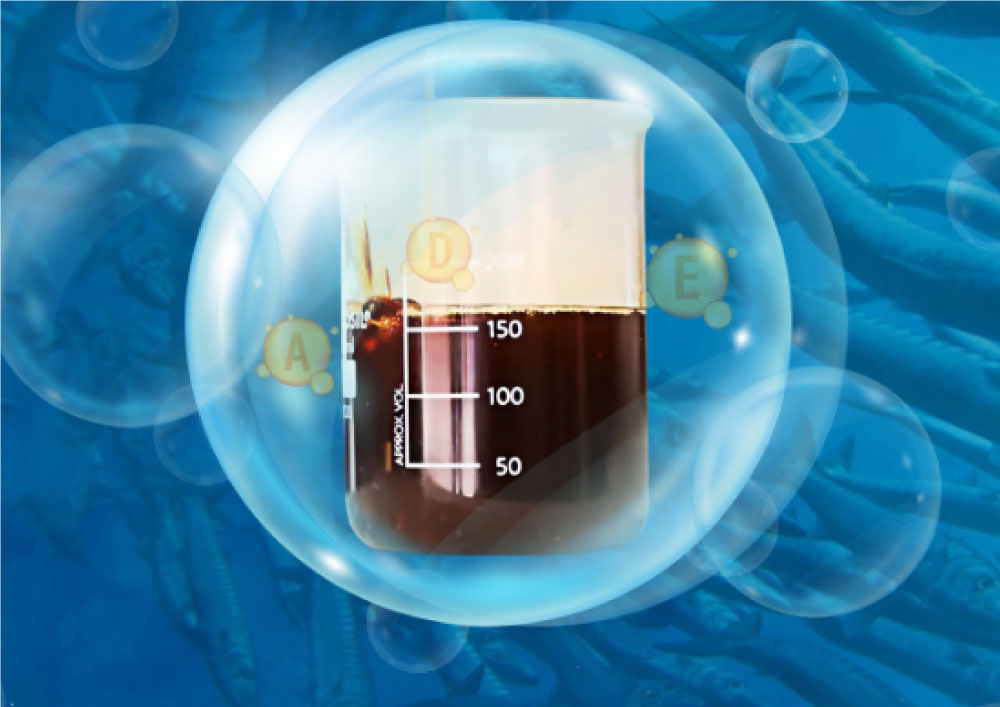
Fish soluble paste is an essential energy supplement for livestock
Fish oil
Fish oil provides omega-3 fatty acids (DHA and EPA), as well as vitamins A and D, which are beneficial for enhancing cardiovascular health, boosting immunity, and promoting the development of the nervous system. Additionally, fish oil improves the appearance and health of the skin, fur, and scales of livestock, thereby enhancing the quality of the final product
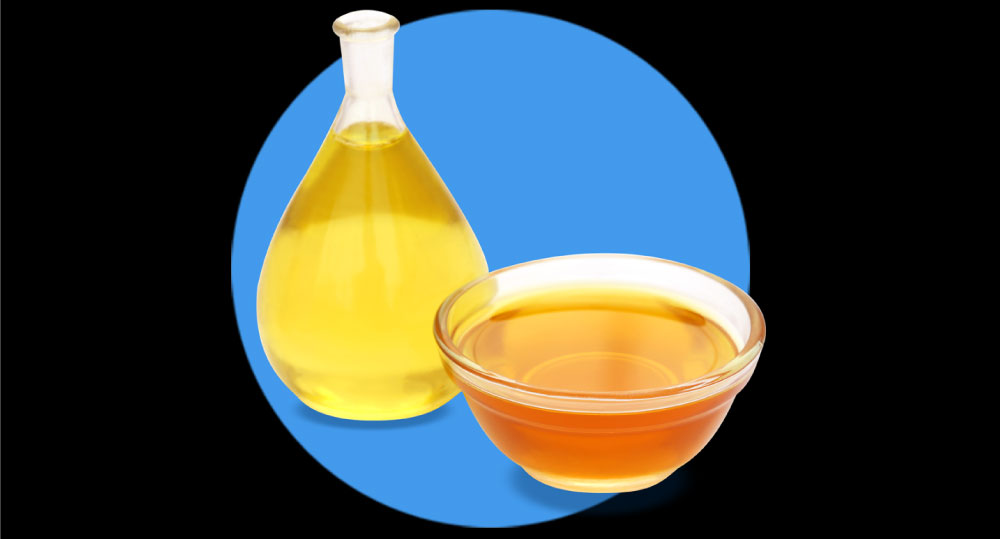
Incorporating fish oil into the diet helps livestock develop strong, healthy bodies while improving product quality
Rice bran
Rice bran contains 10-15% protein, along with B vitamins, vitamin E, minerals, and fiber. It is a valuable plant-based protein source that aids digestion, strengthens the immune system, and improves the overall health of livestock.
>> See more: The Value Of Rice Bran In Animal Feed Processing
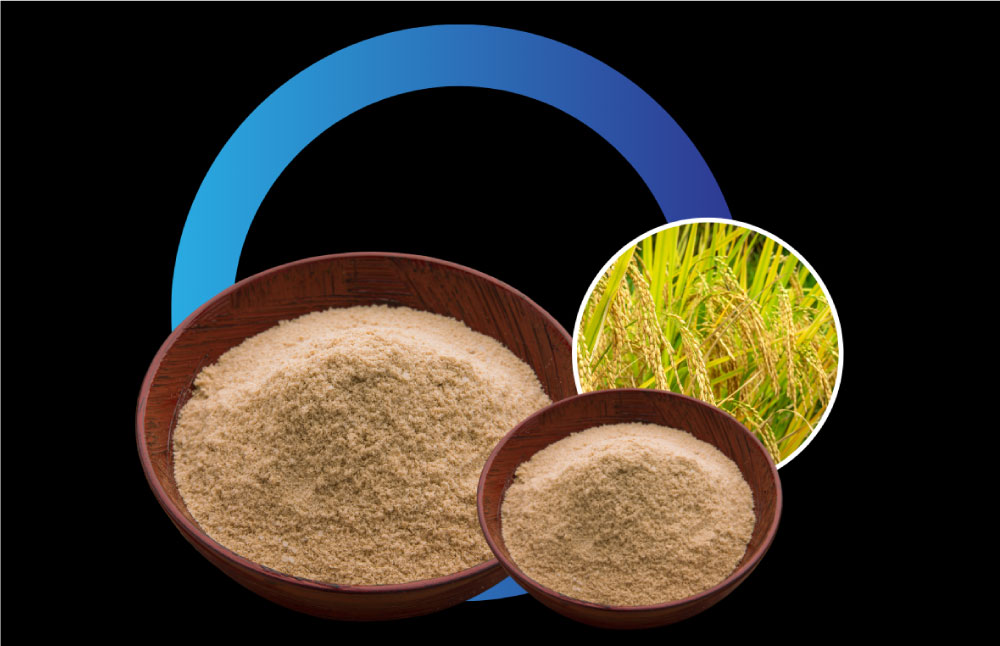
Rice bran is a high-quality source of energy and protein with an abundant supply
Cassava residue
Cassava residue contains 3-5% protein, which is lower than other protein sources, but it provides a rich amount of carbohydrates that help livestock maintain energy for daily activities. When combined with other protein sources, cassavaresidue helps balance nutrition and reduces costs.
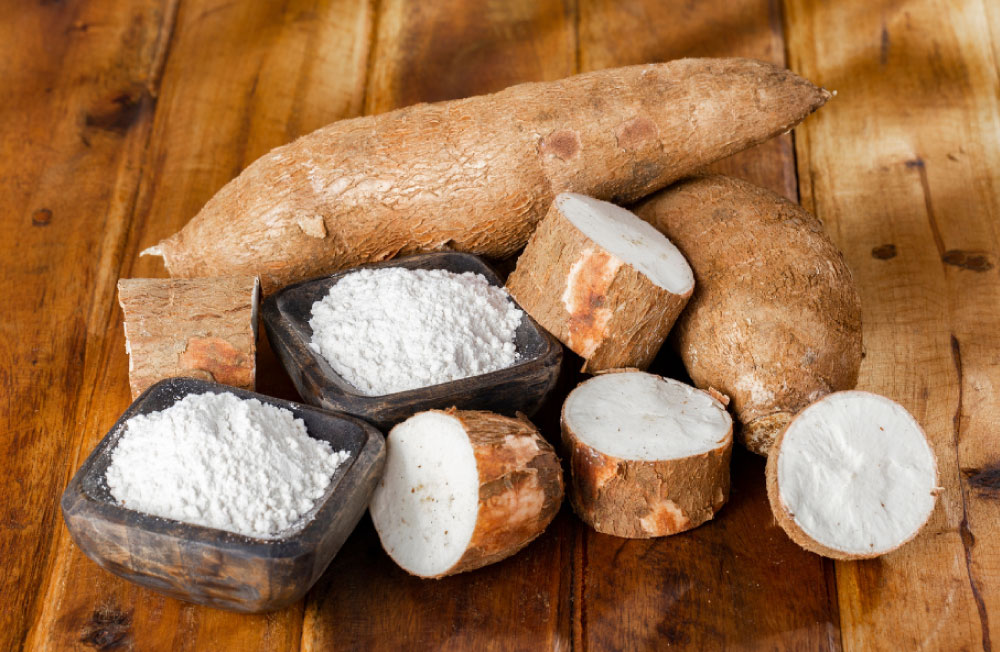
Combining cassava residue with other ingredients helps balance nutrition and enhance farming efficiency
Protein is an essential component for livestock, playing a vital role in growth, health maintenance, and improving production efficiency. The protein requirements of animals vary, and feed manufacturers must ensure a proper mix of ingredients and the use of high-quality protein sources. Masi is committed to providing premium animal feed ingredients tailored to the needs of businesses. As one of the leading and most reputable suppliers in Vietnam, We offer fishmeal, fish hydrolysate, fish oil and animal feed supplements that meet strict quality standards and provide optimal nutritional value. If you are looking for a supplier of high-quality animal feed ingredients, contact Masi today for professional advice and consultation.
--------------------------------------
Contact Information:
Masi
- Office: 7th Floor, Giga Mall, 240 - 242 Pham Van Dong, Hiep Binh Chanh Ward, Thu Duc City, Ho Chi Minh City, Vietnam
- Manufacturing Facility: Lot C11, Fish Sauce Processing Area, Phu Hai Ward, Phan Thiet City, Binh Thuan Province, Vietnam
Email: Cs@masi.vn
Call center: 0909 411 885 - 0911 401 955 - 0979 045 766
Website: https://masi.vn/